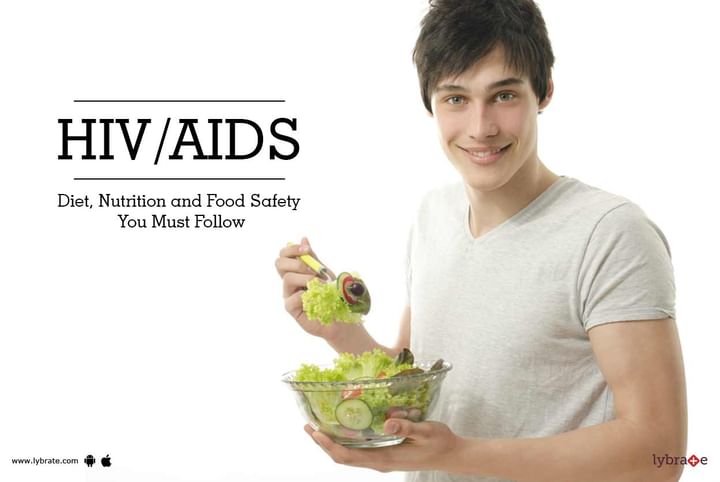HIV/AIDS: Diet, Nutrition and Food Safety You Must Follow
HIV/AIDS is a STD which is caused by the Human Immunodeficiency Virus (HIV). The HIV virus attacks the immune system and makes the body vulnerable to other diseases. AIDS is the last stage disorder caused by HIV infection. This disorder destroys the human immune system which might lead to other life- threatening diseases such as cancer. If diagnosed with HIV, one must necessarily maintain a healthy dietary regime because the nutrients one derives go on to contribute to the development of the immune system, thus providing resistance to the side effects of the HIV medicines.
The early symptoms of HIV/AIDS appear within a few weeks after sexual contact. The early symptoms include a headache, pain in the muscles and the joints, rashes and inflamed lymph nodes. The early symptoms tend to disappear within 2 to 3 weeks. The next set of symptoms might appear after a few years which might be persistent. The symptoms include fatigue, loss of body weight, inflated lymph nodes, fever and sweat during the night.
If you are diagnosed with HIV, you should:
- Try to maintain a daily diet containing vegetables, legumes, and fruits which provide you energy.
- Try to include a little bit of fat, carbohydrates (at least 3 servings of vegetable per day), calcium (dairy products) and low-fat protein sources (generally 80-150 gram per day of fish, skinned chicken, low-fat cheese etc.) in your everyday meal.
- Maintain a daily calorie intake of 17-25 calories per pound depending on whether the person is losing weight.
- Vitamins and minerals are particularly necessary to repair the cells damaged by the HIV virus.
So, it is necessary to intake foods such as eggs, milk, peanuts, green vegetables, meat, beans and broccolis on a regular basis, if you have been diagnosed with HIV.
If you are suffering from HIV, you must maintain the following food safety measures:
- You should try to restrict the intake of fat
- Restrict your alcohol intake
- You should try to avoid fast foods
- You should also limit your regular sugar intake and should avoid foods with extra sugar
If you wish to discuss about any specific problem, you can consult a specilized dietitian-nutritionist and ask a free question.



+1.svg)
